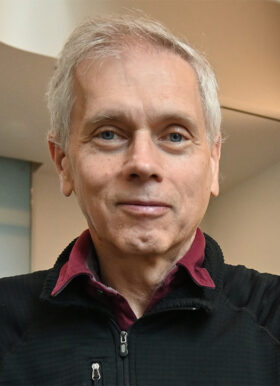
Marco Colonna, MD
Robert Rock Belliveau, MD Professor of Pathology & Immunology
Contact
- Email: mcolonna@wustl.edu
- Phone: 314-362-0367
Office Location: BJC Institute of Health, 8th Floor, Office 8602
Titles
Professor of Immunobiology
Professor of Medicine
Education
MD, 1983
Specialization in Internal Medicine, 1988
Research Interests
Dr. Marco Colonna was born in Parma, Italy, received his medical degree and specialization in internal medicine at Parma University (Parma, Italy) and completed his postdoctoral training at Harvard Medical School (Cambridge, Massachusetts, USA). He became a scientific member of the Basel Institute for Immunology (Basel, Switzerland). Since 2001 he has been a Professor of Pathology & Immunology at Washington University School of Medicine in St. Louis, MO, USA. Since 2019 Dr. Colonna is a member of the National Academy of Science. Dr. Colonna’s research focuses on immunoreceptors. In this field his accomplishments encompass identification and characterization of the Killer cell Ig-like receptors and HLA-C polymorphisms as their inhibitory ligands, as well as the discovery of the LILR and TREM inhibitory and activating receptor families. Through analysis of the cellular distribution of these receptors, he identified plasmacytoid dendritic cells as source of IFN-/ in anti-viral responses and innate lymphoid cells that produce IL-22 in mucosae. His current areas of research include: 1) Innate lymphoid cells in mucosal immunity. 2) Plasmacytoid dendritic cells in host defense and autoimmunity.3) TREM2 and innate immunoreceptors in Alzheimer’s disease and cancer.
Selected Publications
SLC7A8 is essential for metabolic fitness and function of Th2 cells
Publication
Diversity and immune dynamics of choroid plexus macrophages are shaped by distinct developmental origins
Publication
TREM2 promotes lung fibrosis via controlling alveolar macrophage survival and pro-fibrotic activity
Publication
Retargeted oncolytic viruses engineered to remodel the tumor microenvironment for glioblastoma immunotherapy
Publication
Assistant

Elizabeth Moore
Administrative Office Supervisor
Contact
- Email: melizabeth@wustl.edu
- Phone: 314-362-9103
Office Location: Clinical Science Research Building, 7th Floor, Room 7701A, Campus Box 8118